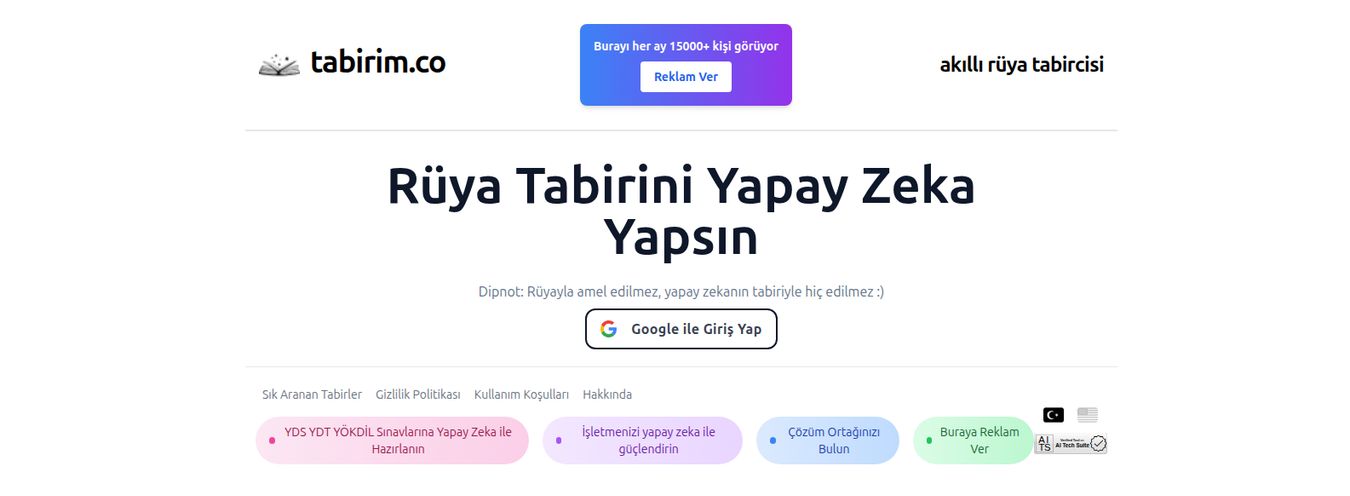I've been there. You've been there. We've all been there. Staring at a screen, 27 browser tabs open, trying to piece together the perfect vacation itinerary from a chaotic mess of blog posts, reviews, and outdated forum threads. The excitement of booking a flight slowly drains away, replaced by a creeping sense of... well, dread. It’s the classic analysis paralysis, and it can suck the joy right out of a trip before you've even packed your bags.
For years, the SEO and travel tech worlds have been buzzing about a solution. And now, it feels like we’re on the cusp of it with the explosion of generative AI. A whole new crop of tools is popping up, all promising to be our personal travel agent, our digital concierge, our cure for the 27-tab nightmare. One of the newest names on the block is GENjourney, and I had to see what it was all about.
So, can an algorithm really dream up a better getaway than my own frazzled, caffeine-fueled brain? Let’s find out.
What Exactly is GENjourney?
At its core, GENjourney is a super-focused AI tool. Its mission is simple: to help you dream up your next vacation. Based on the very clean, almost zen-like interface I've seen, it’s not trying to be an all-in-one booking engine, flight tracker, and hotel comparison site. And honestly? Thank goodness for that. In my experience, the best tools are the ones that don't try to do everything. They do one thing, and they do it well. GENjourney seems to be aiming for that sweet spot.
The tagline on its homepage says it all:
Let Generative AI dream up your next vacation getaway.
It’s not about logistics; it’s about inspiration. It's designed to take your vague ideas—a “mountain advent…” as their site puts it (love the slightly quirky phrasing), or a much-needed city escape—and spin them into a concrete, personalized itinerary you can actually use.

Visit GENjourney
Putting GENjourney to the Test: A First Look
The whole process seems built on simplicity. You don’t need to fill out a 50-question survey about your favorite color and spirit animal. The idea is to talk to it like you would a friend. You start with a simple prompt, your seed of a travel idea, and the AI takes it from there. It's a conversational approach to planning that feels much more natural than endlessly ticking filter boxes on a giant travel aggregator site.
I imagine it works something like this: You type in "a relaxing 4-day weekend in a European city with great food and history, but not crazy crowded in May." Then, GENjourney’s generative AI model gets to work, pulling from its vast knowledge base to create a potential itinerary. Maybe it suggests Bologna, Italy instead of Rome, or Lisbon, Portugal, complete with ideas for what to do, see, and eat each day.
The Promise of Personalized AI Travel Planning
So, why is this a big deal? Because it tackles the single biggest pain point in travel: the blank page. It gives you a starting point. A framework. A draft that you can then tweak and make your own.
For me, the potential benefits are pretty clear:
- Curing Creative Blocks: Sometimes you just don't know where you want to go. A tool like this can throw out ideas you'd genuinely never have considered.
- Serious Time-Saver: The hours I've spent researching connections, opening times, and 'best-of' lists is probably enough to have earned a PhD in logistics. Automating that initial research is a game-changer.
- Beyond the Obvious: A well-trained AI could, in theory, find connections and patterns that humans miss. It could pair a love for modern art with a craving for street tacos and find the one city that does both exceptionally well.
It's less like a rigid tour guide with a flag and a schedule, and more like a creative brainstorming partner who’s had way too much coffee. It throws ideas at the wall, and you get to pick what sticks. It's a collaborative process, not a prescriptive one.
The Human Element vs. The Algorithm
Of course, I have my professional skepticism. It’s part of the job. Some might argue that an AI can't possibly capture the soul of a place. And they're not wrong. Travel isn’t just a series of data points. It’s about feeling, serendipity, and those happy accidents.
My biggest question for any AI travel planner is this: can it help you find the hidden gems? Or is it just going to regurgitate the top 10 TripAdvisor results for every city? It’s a real concern. This taps into a larger conversation in the travel tech space, a debate that’s been raging since the first OTAs popped up: convenience versus authenticity. GENjourney is the latest chapter in that story.
"I've always found the best ramen shops by getting lost down a side alley in Kyoto, not by following a perfectly optimized map. The magic is in the imperfection."
The challenge for GENjourney and its peers will be to source data that goes beyond the obvious. Can it learn to suggest that quirky little bookstore or that family-run taverna that doesn't even have a website? That's the holy grail. I remain optimistic but cautious. For now, I see its role as building the perfect skeleton for a trip, which you then flesh out with your own discoveries.
Who is GENjourney For (and Who Should Stick to Google Maps)?
This tool isn't gonna be for everyone, and that's okay. Based on what I see, here’s how I think it shakes out.
| You'll Probably Love GENjourney If... | You Might Want to Pass If... |
|---|---|
| You're an Overwhelmed Planner who gets stuck in the research phase. | You're a Hardcore Backpacker who thrives on pure, unadulterated spontaneity. |
| You're an Inspiration Seeker who wants fresh ideas beyond the usual tourist traps. | You're a Luxury Traveler who requires the high-touch, nuanced service of a human travel advisor. |
| You're planning a Family or Group Trip and need a solid baseline itinerary that pleases multiple people. | You're a seasoned Digital Nomad who knows a city's cafe scene better than the algorithm ever could. |
What's the Catch? A Look at GENjourney's Pricing
Now, the big question on everyone’s mind... what's this gonna cost me? As of writing this, there's no public pricing information available for GENjourney. This is pretty common for a platform that seems to be in its early stages. It could be in beta, or the creators are still figuring out the best model.
I could see it going a few ways: a 'freemium' model where you get a few free itineraries per month, a one-time fee per trip generated, or a full-blown subscription for power planners. My personal hope is for a generous free tier. That’s the best way to get people like us hooked, right? Let us see the magic first, then talk money.
The Verdict: Is GENjourney Your Next Co-Pilot?
After looking at what GENjourney is putting on the table, I'm genuinely intrigued. It represents a shift from manual, brute-force planning to a more intelligent, collaborative approach. It’s not a replacement for human curiosity or the joy of discovery, and it shouldn't be. No AI can replicate the feeling of stumbling upon a hidden courtyard or striking up a conversation with a local artisan.
But as a co-pilot? An intelligent assistant to handle the heavy lifting of initial research and structure? Absolutely. I think GENjourney has the potential to be a powerful tool in any modern traveler's arsenal. It's a way to break free from the familiar and start your adventure from a place of inspiration, not frustration.
It's about making the planning process part of the fun again. And that’s a trend I can definitely get behind.
Frequently Asked Questions about GENjourney
- Is GENjourney free to use?
- Currently, there is no public information on GENjourney's pricing. It may be in a free beta phase or operating on an unannounced model. It's best to check their site for the most current details.
- How does GENjourney create personalized itineraries?
- It uses generative AI. You provide a prompt or an idea for your trip (e.g., "a cultural trip to Southeast Asia focusing on food and temples"), and the AI model processes this request to generate a suggested itinerary, including destinations, activities, and flow.
- Can GENjourney book my flights and hotels?
- Based on its current positioning, GENjourney appears to be an idea and itinerary generator, not a booking platform. Its main function is to help you plan the trip, which you would then book separately through your preferred vendors.
- Is an AI-planned trip better than a human-planned one?
- It's different. An AI can process huge amounts of data to create an efficient and logical plan quickly. A human brings emotion, nuance, and personal experience. The best approach is likely a hybrid one: use AI like GENjourney for the initial draft and inspiration, then use your human intuition to refine and perfect it.
- What kind of traveler would benefit most from GENjourney?
- Travelers who feel overwhelmed by the planning process, those looking for new and unique travel ideas, and groups or families who need a solid starting point for a complex trip would likely find it most useful.
Reference and Sources
- Skift's Travel Technology Section - For general news and trends in the travel tech industry.
- PhocusWire on Generative AI - For deeper insights into how AI is changing the travel landscape.



